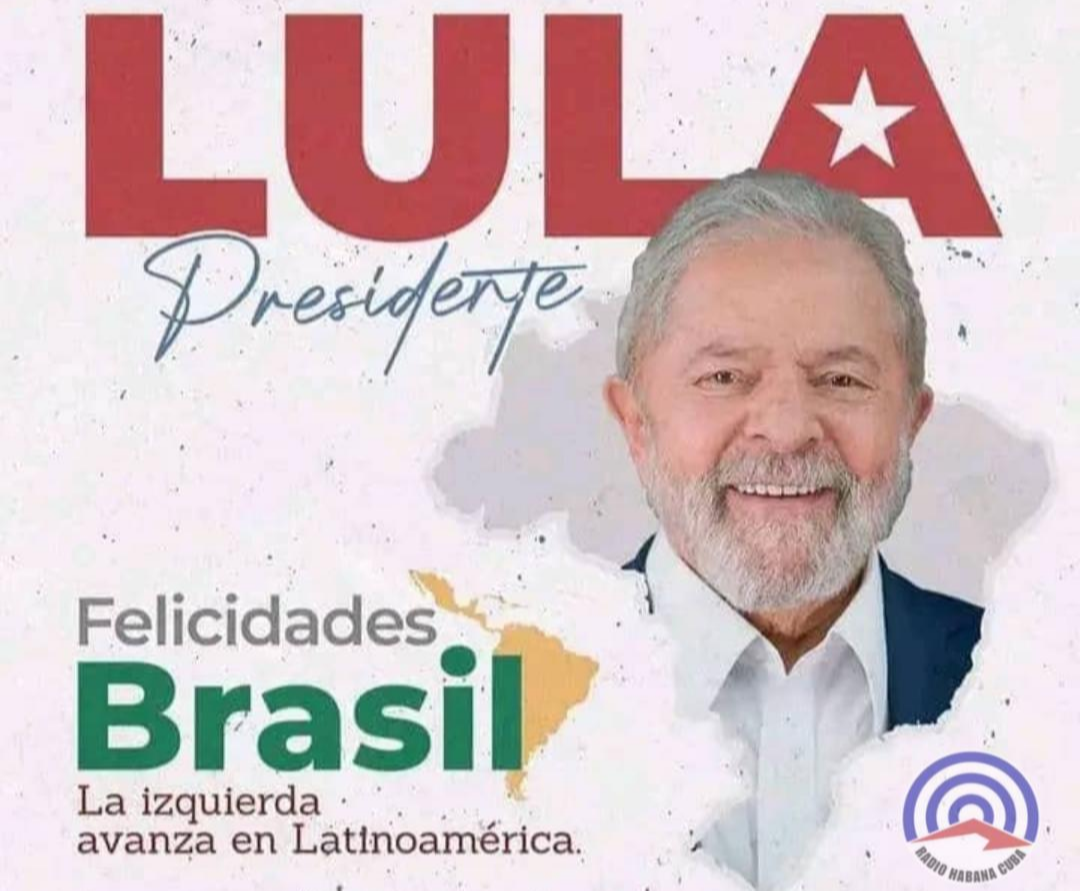
Lula da Silva returns to the presidency of Brazil
By María Josefina Arce
Brazil has opted for change. Former president Luiz Inácio Lula da Silva, of the Workers' Party, won the second round of the general elections this Sunday, the most polarized and tense in recent times and which showed a highly divided country.
In an extremely close race in which the difference between the two candidates was minimal, Lula da Silva won with 50.83% of the votes, while the current president, the ultra-right-wing Jair Bolsonaro, who was seeking reelection, obtained 49.17%.
The former president had also been the winner in the first round on the 2nd, in which Bolsonaro already had a rebound, a detail that cannot be overlooked and that sets off alarms, given the growth, analysts warn, of extremism in the Brazilian territory.
Lula da Silva, who concluded his two terms in office, from 2003 to 2010, with more than 80% approval, is the first head of state to return to the Planalto Palace for the third time.
With their vote, Brazilians decided to put an end to four years of Bolsonaro's controversial and disastrous administration, who at all times defied democratic institutions and wielded a discourse in favor of arming Brazilians and hatred against the opposition.
The citizenship did not forget the bad response to COVID 19 of the government presided by the former army captain, who qualified the disease caused by the new coronavirus as a simple flu, opposed the use of the mask, the necessary social isolation to prevent the spread and delayed the vaccination process.
As a result, Brazil became the country with the second highest number of deaths worldwide due to the virus, with nearly 700,000 fatalities.
Brazilians also voted to punish the current president for his questionable environmental policy. Under his mandate, deforestation of the Amazon region reached record levels, invaded by illegal mining, indiscriminate logging and agribusiness, which he encouraged at all times.
The current elections were preceded by a campaign dominated by political violence and a strong proliferation of false news, generated by Bolsonaro's team and supporters.
In fact, the Superior Electoral Court took action. It monitored social networks, cancelled profiles and supported the investigation of a digital group that operated with public money to delegitimize democracy.
Such has been the verbal aggression and attempts to discredit the candidate of the Workers' Party that in the run-up to this second round, important issues have been left out of the discussion.
Moreover, Bolsonaro, in order to undermine the vote for Lula, distributed direct economic aid to the poorest population. Analysts point out that public spending has increased in the last three months.
The question now is whether Bolsonaro will accept his defeat, after having insistently questioned the Brazilian electoral system and the possibility of fraud against him, a narrative to which his supporters continue to resort.

